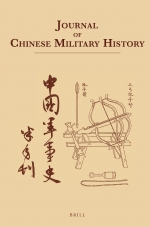Edward A. McCord, "Militia Training and State Control in Republican Hu'nan," Journal of Chinese Military History 1, no. 1 (2012): 5-23."This study of Hunan province during China’s Nanjing decade (1927-1937) shows how militia training could play a key role in the extension of state control both over local militia and through militia into local society. Provincial authorities in Hunan used an argument for the need to increase the efficacy of militia through more rigorous military training to justify an activist intervention in local militia organizations. This training goal then provided a means of extending increased state control over militia as provincial personnel were dispatched to “supervise” local militia training, as local militia leaders were evaluated on the basis of their ability to provide this training, and as training content was expanded to include political indoctrination as well as military skills. Meanwhile the government strengthened ties with local militia officers through extended training programs in the provincial capital or in army units. While many of these efforts focused on standing militia forces and their officers, training programs were also instituted for the mass membership of lower-level “volunteer corps.” More than just political indoctrination, the regimentation instilled by regular training programs also worked to increase the state’s control over the lives of its citizens."
“Militia Training and State Control in Republican Hu'nan."
January 2, 2012


